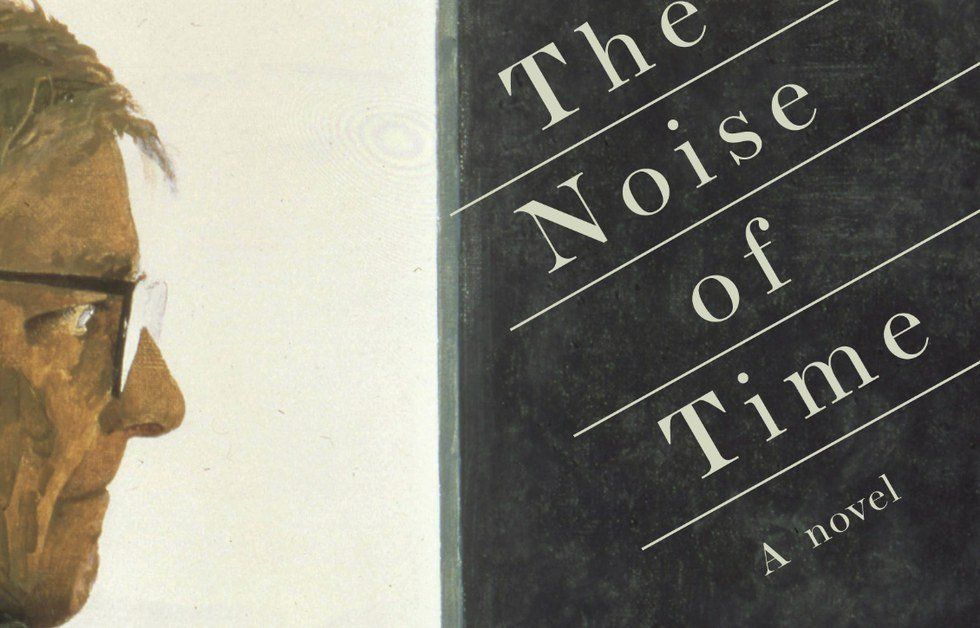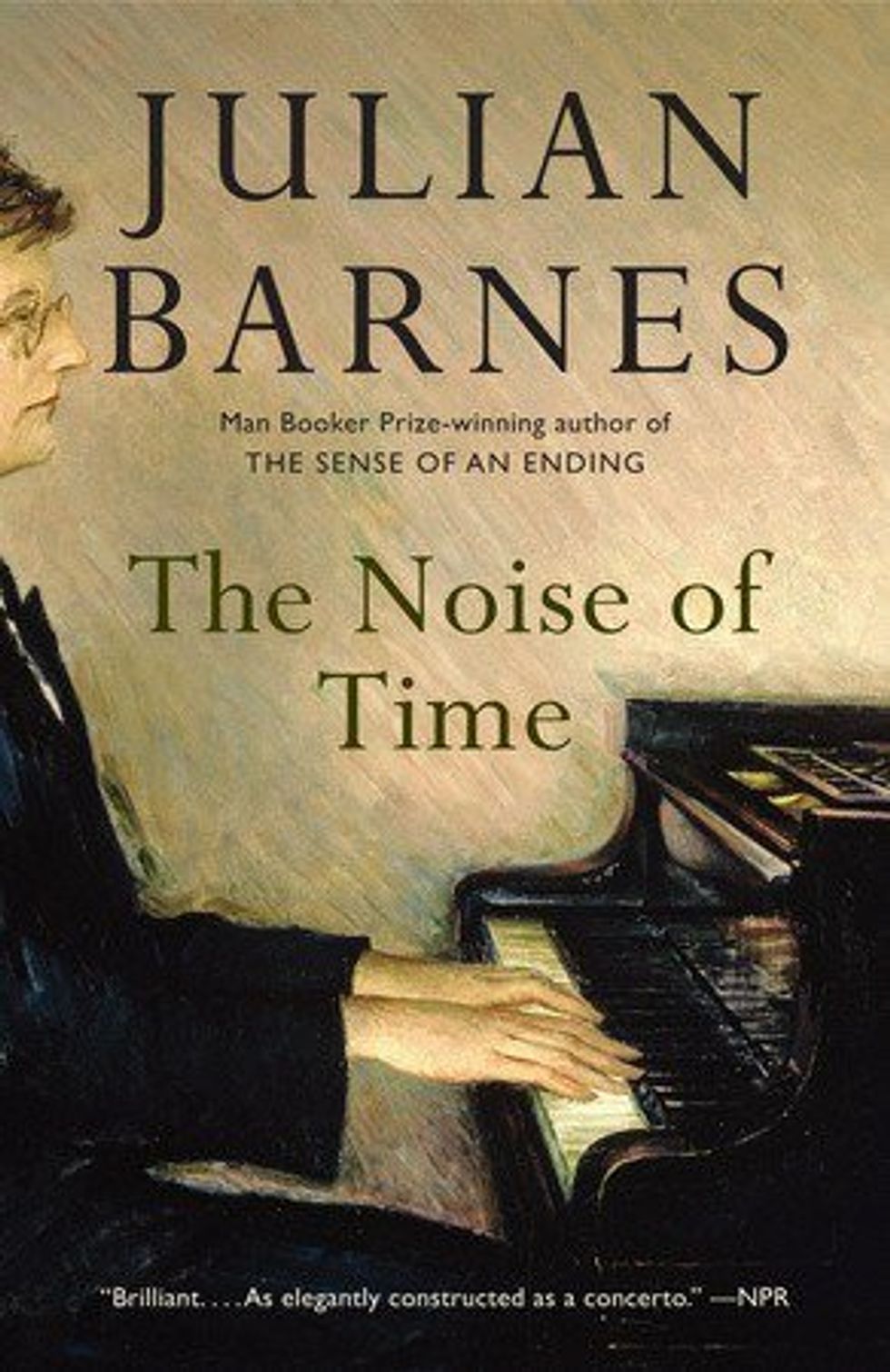The Noise of Time by Julian Barnes is a novel based on the life of Russian composer Dmitri Shostakovich which carefully and brilliantly examines the effects of despotism on the composer, his music, and his society.
Alex Preston writes in a review for the Guardian that the novel "gives us the breadth of a whole life within the pages of a slim book, written in an intimately close third person." The work is a sort of fictional biography. In the author's note, Barnes acknowledges that uncertainty regarding specific details of a person's life or historical events are "highly frustrating to any biographer, but most welcome to any novelist" (200).
Having recently finished the novel, here are 18 quotes to feed your curiosity in hopes that you might pick up a copy for yourself:
1. At moments his mind refused to believe what was happening. It can't be, because it couldn't ever be, as the Major said when he saw the giraffe. But it could be, and it was" (7).
2. "They always came for you in the middle of the night. And so, rather than be dragged from the apartment in his pajamas, or forced to dress in front of some contemptuously impassive NKVD man, he would go to bed fully clothed, lying on top of the blankets, a small case already packed on the floor beside him" (12-13).
3. "A composer was expected to increase his output just as a coal miner was, and his music was expected to warm hearts just as a miner's coal warmed bodies. Bureaucrats assessed musical output as they did other categories of output; there were established norms, and deviations from those norms" (24).
4. "But still, he was young, confident in his talent, and highly successful until three days ago... What they wre dealing with here was not a bad review, signed by a critic whose opinion might vary according to the day of the week or the state of his digestion. This was a Pravda editorial... Holy writ, in other words" (27).
5. "He became nervous, things blurred in his mind, and he would sometimes make a decision simply in order to have the matter settled rather than because he knew what he wanted" (30).
6. "He found himself reflecting on questions of honesty. Personal honesty, artistic honesty. How they were connected, if indeed they were. And how much of this virtue anyone had, and how long that store would last. He had told friends that if ever he repudiated Lady Macbeth of Mtsensk, they were to conclude that he had run out of honesty" (32).
7. "This was how you should love - without fear, without barriers, without thought for the morrow. And then, afterwards, without regret" (34).
8. "Power had always been more interested in the word than the note: writers, not composers, had been proclaimed the engineers of human souls. Writers were condemned on page one of Pravda, composers on page three. Two pages apart. And yet it was not nothing: it could make the difference between death and life" (40).
9. "The engineers of human souls: a chilly, mechanistic phrase. And yet... what was the artist's business with, if not the human soul? Unless an artist wanted to be merely decorative, or merely a lapdog of the rich and powerful" (40).
10. "In that optimistic time... it had seemed as if all the arts might finally come together in one glorious joint project. Music and literature and theatre and film and architecture and ballet and photography would form a dynamic partnership... Artists, of their own free will, and without any political direction, would help their fellow human souls develop and flourish" (40).
11. "The truth of his answers was irrelevant. What had been decided had been decided" (47).
12. "Let Power have the words, because words cannot stain music. Music escapes from words: that is its purpose, and its majesty" (60).
13. "Fear normally drives out all other emotions as well; but not shame. Fear and shame swilled happily together in his stomach" (63).
14. "Fear: what did those who inflicted it know? They knew that it worked, even how it worked, but not what it felt like. 'The wolf cannot speak of the fear of the sheep,' as they say" (66).
15. "They also reported that Americans, contrary to their own propaganda, were very passive by nature, since everything was pre-processed for them, from ideas to food" (68).
16. "To his mind, rudeness and tyranny were closely connected... To be rude to an orchestral player who was doing his best was disgraceful. And these tyrants, these emperors of the baton, revelled in such terminology - as if ian orchestra could only play well if whipped and derided and humiliated" (86).
17. "When truth-speaking became impossible - because it led to immediate death -it had to be disguised. In Jewish folk music, despair is disguised as the dance. And so, truth's disguise was irony. Because the tyrant's ear is rarely tuned to hear it" (90).
18. "Art belongs to everybody and nobody. Art belongs to all time and no time. Art belongs to those who create it and those who savour it. Art no more belongs to the People and the Party than it once belonged to the aristocracy and the patron. Art is the whisper of history, heard above the noise of time."





















